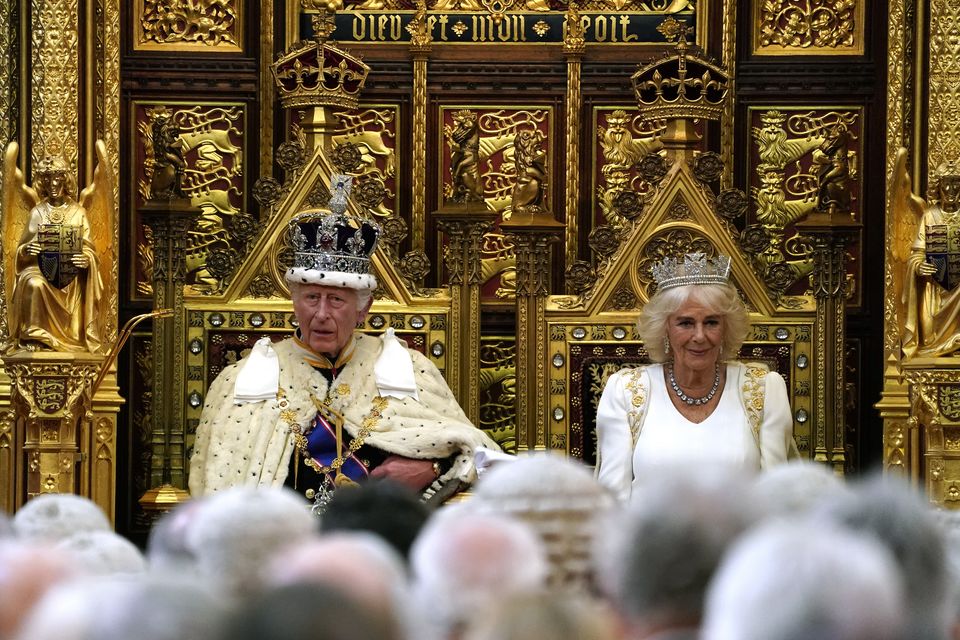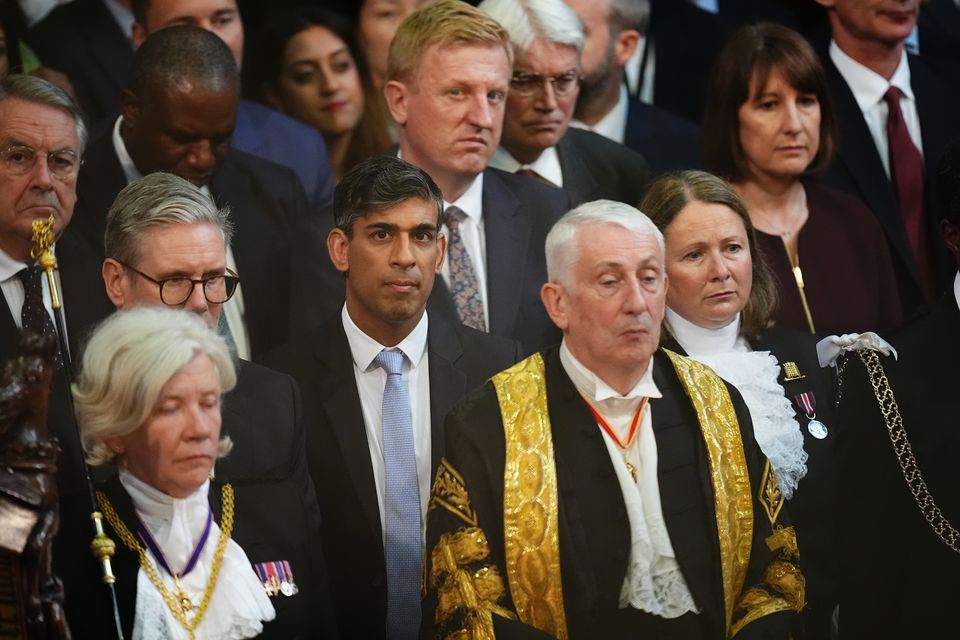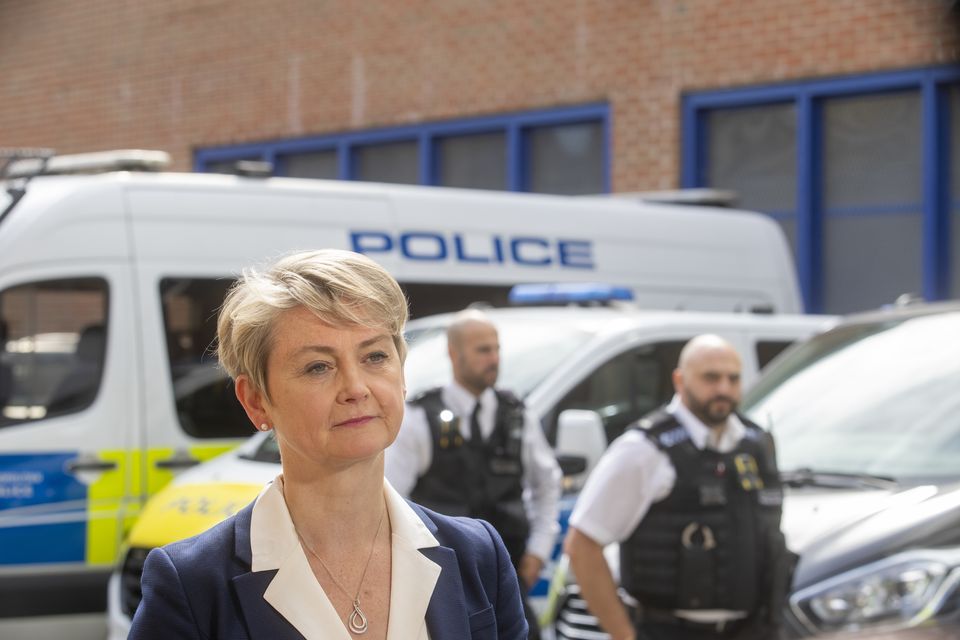Laws to “modernise the asylum and immigration system” will underpin the Government’s bid to launch a security border command, paid for by money saved from the scrapped multimillion-pound stalled Rwanda plan.
The Border Security, Asylum and Immigration Bill, announced in the King’s Speech, will establish the new Home Office unit, using counter-terror powers to fight organised immigration crime, documents detailing the plans said.
The Bill, which will apply across the UK if passed, will ensure “secure and stronger borders and a properly controlled and managed asylum system”, the Government vowed, as it repeated general promises to clear the asylum backlog, to end the use of hotel accommodation and increase “fast-track returns for individuals coming from safe countries”.
The Border Security, Asylum and Immigration Bill was announced in the King’s Speech (Alberto Pezzali/PA)
Building on Labour’s manifesto pledges, it said existing policies had “failed” to deter Channel crossings or prosecute the people smugglers responsible, and “our current asylum system is broken”.
Withdrawing from the “failed and incredibly costly Migration and Economic Development Partnership” to send migrants to Rwanda would save “over £100 million in future payments”, as well as “tens of millions of pounds” in additional relocation costs for a small number of people.
But there was no mention of answering calls from campaigners to repeal the Safety of Rwanda Act or Illegal Migration Act.
The document setting out the Bill suggests the Government will seek a “strong deterrent” against migrants crossing the Channel but stops short of detailing what this could be in the absence of the Rwanda deal.
Prime Minister Sir Keir Starmer, left, previously said the Rwanda deal was ‘dead and buried before it started’ (Aaron Chown/PA)
It does indicate tougher penalties for immigration crime, including introducing offences such as “enabling the advertising (of) the services of a migrant smuggling group” or those for the “supply of materials needed to facilitate organised crime gangs”.
Prime Minister Sir Keir Starmer previously said the Rwanda deal was “dead and buried before it started” as Labour confirmed it was scrapping the deportation policy.
The arrangement is not thought to have yet formally ended and the cost to the UK Government of walking away early from the five-year deal is so far unknown.
The Rwanda government previously said it had “fully upheld its side of the agreement”.
Launching the Border Security Command earlier this month, Home Secretary Yvette Cooper described it as Labour’s first priority on migration, which was designed to crack down on people-smuggling gangs orchestrating the crossings.
A commander for the unit is expected to be appointed in the coming weeks.
It is unclear how this will differ from existing units already operating in the Home Office.
More than 1,000 migrants have arrived in the UK after crossing the Channel since Sir Keir became Prime Minister on July 5 and the Government has warned of a “difficult summer ahead”.
Home Secretary Yvette Cooper launched a new Border Security Command to tackle Channel crossings earlier this month (Jeff Moore/PA)
The total number of crossings for 2024 to date (14,759) is 12% higher than the number recorded this time last year (13,200) and up 1% on the same period in 2022 (14,622), according to PA news agency analysis of Government data.
Other proposed bills set out in the King’s Speech promised extra powers for police watchdogs and those tasked with fighting for better victims’ rights.
But no mention is made in the border Bill of expanding the remit of the chief inspector of immigration and borders, a post which remains vacant after David Neal was sacked earlier this year after publicly voicing concerns about security problems at airports.
Mr Neal had previously called for more powers to better scrutinise border security.


